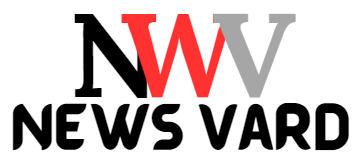In August 2024, the Saturn Calendar app hit no.1 on the Apple App Store. The app, which was backed by Nikita Bier (more on him later), is something of a hybrid of a calendar app and social network.
Now, our goal here is not to extol the virtues of the Saturn Calendar. The app has a nice UX and works well, but it’s not perfect. Moreover, some have raised privacy concerns about how the app deals with users’ data. But what is interesting is how the app – a calendar app – made it to the top of the App Store in 2024. And that’s all about the demographic it targets – Gen Z.
Most of us have calendar apps – Google Calendar or Calendar (iOS) – on our smartphones. And, if you work as part of a team, you’ll probably have come across more comprehensive options like Calendly, Trello, or Asana. The point, as such, is that calendar apps are fairly ubiquitous. And let’s be honest: they aren’t very exciting.
Yet, the team behind Saturn Calendar made a concerted effort to target high schoolers and college students. As mentioned, Nikita Bier was a backer of the app. Bier is well known for having the Midas touch with Gen-Z-facing apps, having launched and created “tbh”, which was bought over by Facebook, and Gas, an app that went viral in 2022 before being bought over by Discord.
Saturn Calendar understands Gen-Z
Bier was an investor and consultant for Saturn Calendar, and it shows. He seems to have a unique understanding of what makes Gen-Z tick, and it’s what sets Saturn apart from other high-school scheduling apps like Chalkboard and ClassUp – social interactions.
Yet, beyond Saturn’s features, its popularity tells us two distinct truths about successful product launches in crowded markets. First,you can stand out from the crowd if you offer a new spin on an existing concept. Secondly, targeting a specific demographic can lead to success.
Looking at the first metric is interesting. As we said earlier, scheduling apps doesn’t seem very exciting. It’s not the kind of thing you would see VCs tripping over themselves to invest in. The pushback, you’d imagine, would come from the fact that it’s been done many times before. Not only that, every stratum of calendar apps has been covered, ranging from the free app on your smartphone or Google workstation to the enterprise-focused paid-for apps. Yet, Saturn convinced investors it could reinvent the wheel.
Standardized concepts can be improved

This coup of improving a seemingly standardized concept should not be lightly dismissed, as it is hard to pull off. Yet, we are constantly shown examples of how it is done. Consider sports betting apps, for example. You might think there are only so many ways you can bet on an MLS or NFL game. However, betting brands have been constantly inventing new features to stand out in a (very crowded) market for years. New concepts like sports bet builder bets have offered customers a way to engage with sports betting differently.
Saturn Calendar didn’t reinvent the idea of a calendar app but rather enhanced it by integrating social networking elements. This approach isn’t about inventing something entirely new but adding value to an existing concept. The success of Saturn Calendar highlights that even in saturated markets, innovation can come from enhancing user experience, addressing specific pain points, or introducing complementary features that resonate with the target audience.
Secondly, Saturn Calendar’s rise to the top wasn’t just about its features but also about its targeted demographic—Gen Z. By understanding the preferences and behaviors of high school and college students, Saturn Calendar positioned itself as the go-to scheduling tool for this age group, incorporating social elements that resonate with how they interact online.
This generation, more than any other, values seamless integration between productivity tools and social experiences, reflecting their inherently connected lives. They seek out apps that not only serve a functional purpose but also enable connection, collaboration, and self-expression within their peer groups. Saturn Calendar tapped into this desire by not merely being a tool for organization but by becoming a social hub where schedules, events, and group activities could be shared and discussed.
Understanding your customer
And that last concept is the difference-maker here. As we have constantly said, calendar apps aren’t very exciting, but the USP of Saturn Calendar – its secret sauce – is understanding that Gen-Z craves community building online. We see calendar apps as functional, whereas they believe they should be social. Saturn exemplifies how understanding and catering to the deeper social dynamics of a target demographic can be a game-changer in achieving market success.
As stated previously, none of this is meant to glorify Saturn Calendar. Perhaps its success will only be brief. But it’s a fantastic example of how launching a new app or business idea does not have to be an entirely new concept. Moreover, it shows how entrepreneurs can enter a crowded market for an established concept and carve out a niche simply by creating a new spin on that concept and, importantly, understanding the potential customer demographics.





